Are you starting to experience frustration with your dishwasher not drying dishes all the way? You’re not alone! This is an issue that many homeowners struggle with and can be easily resolved if you know where to start. So if you’re looking for answers and stop wondering, “Why is my dishwasher not drying?” this blog post has everything you need. Let’s get started!
What to do if your dishwasher is not drying dishes
If your dishwasher is not drying dishes properly, you can try a few things before calling in an appliance tech. First, check the hot water temperature that enters your dishwasher. If it’s lower than 120 degrees Fahrenheit, the heat may not be enough to dry off plates and glasses completely. You can also check the spray arms to ensure they are spinning fully and spraying water on your dishes. Finally, try changing your detergents; some dishwasher detergents can leave a filmy residue that prevents plates from drying properly.
Causes of a dishwasher not drying dishes
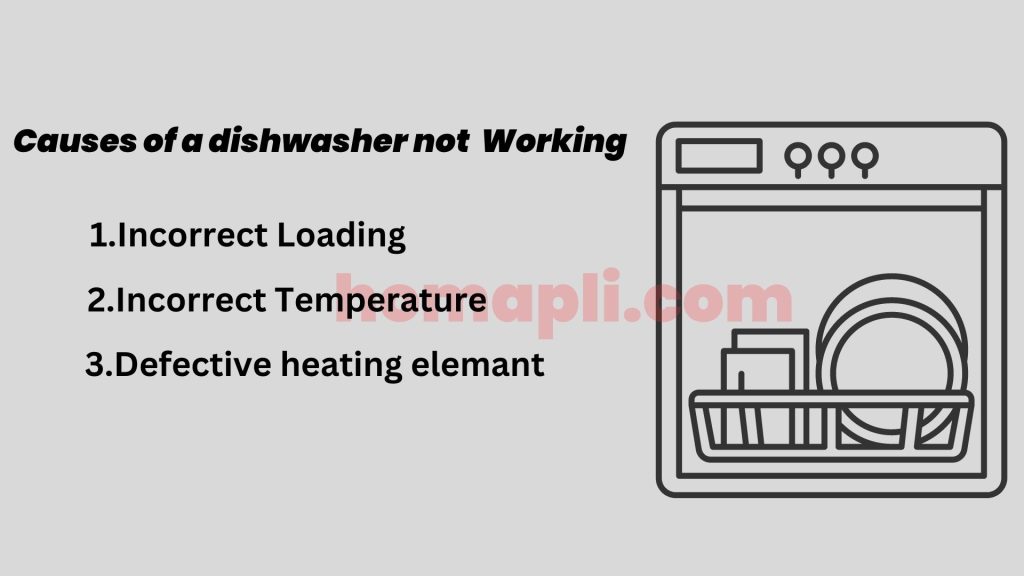
If you’ve tried the tips above, but your dishwasher still isn’t drying dishes, there could be a few other causes to consider. Some of the most common reasons why your dishwasher may not be drying include the following:
- Incorrect loading: Make sure you are loading the dishes in the right way. Incorrectly stacking or putting dishes in the wrong place can cause water to not drain properly, and dishes will remain wet.
- Incorrect temperature: Water needs to be hot enough to evaporate, so ensure your dishwasher is in the right setting. If it’s too low or too high, dishes will not dry completely.
- Defective heating element: If the heating element of your dishwasher is faulty, it won’t be able to reach the temperatures necessary for drying dishes.
Solutions for a dishwasher that doesn’t dry dishes
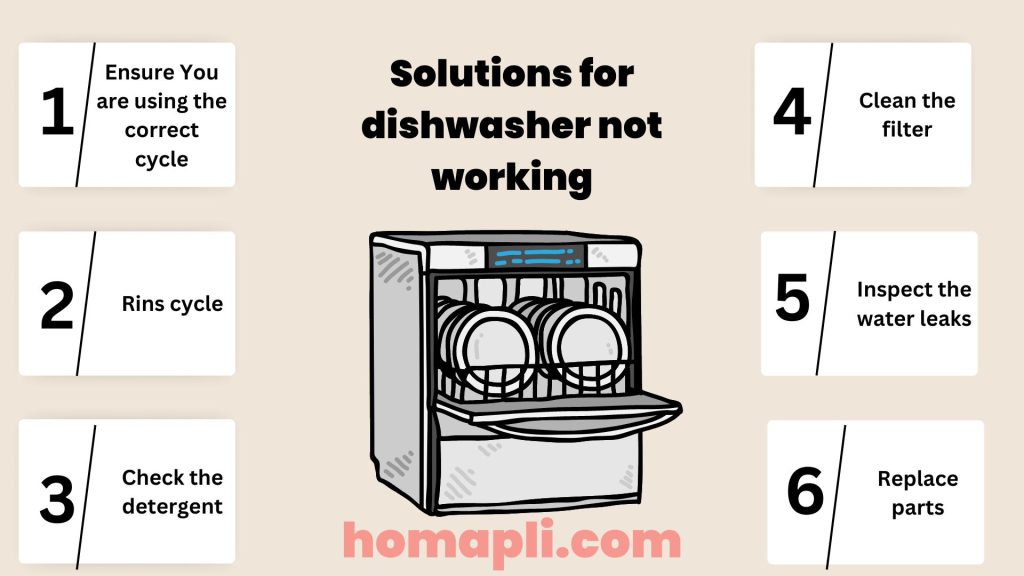
If you’ve identified why your dishwasher is not drying dishes properly, it’s time to take action and solve the issue. The solutions for a dishwasher that doesn’t dry dishes can vary depending on the cause. Here are some of the more the most common options:
- Ensure you are using the correct cycle: Many people use the wrong setting for their dishwasher, which can cause dishes to come out wet. Look through your dishwasher’s user manual to find the correct cycle.
- Rinse cycle: If there’s food residue left on dishes, try running a longer or more powerful rinse cycle. Make sure to scrape off any food particles before the cycle begins.
- Check the detergent: If you use too little or too much detergent, dishes may not come out dry. Refer to your dishwasher’s user manual for instructions on how much detergent to use.
- Clean the filter: If your dishwasher’s filter is clogged, it can reduce airflow and prevent dishes from drying properly. Make sure to clean or change the filter on a regular base.
- Inspect for water leaks: A dishwasher leak can cause dishes to not dry properly. Look for signs of water leaks and repair them promptly.
- Replace parts: If you identify a faulty heating element or thermostat, you’ll need to replace these parts to restore the dishwasher’s performance.
How to properly maintain your dishwasher for optimal performance
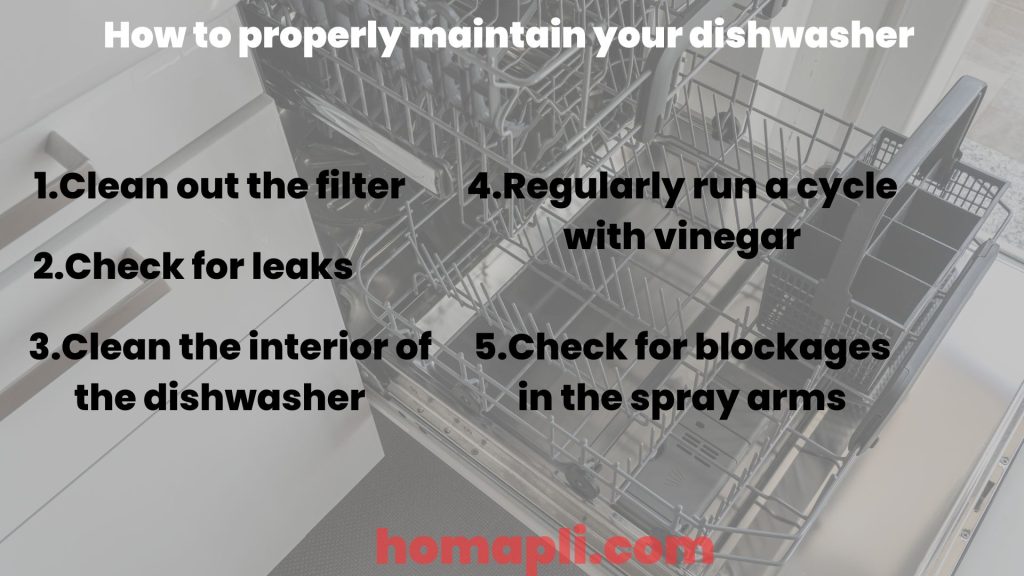
Dishwashers are a great way to save time and energy when cleaning dishes, but proper maintenance of your machine is key to ensuring you get the best performance out of it. To ensure that your dishwasher runs efficiently, you should take the time to check and clean it regularly. Here are a few tips that you should follow to keep your dishwasher running at its best:
1. Clean out the filter: Make sure you take out and clean the filter in your dishwasher regularly to get rid of any food particles or debris caught in the filter. You can either use a vacuum cleaner attachment or gently scrub the filter with an old toothbrush.
2. Check for leaks: Make sure that you check your dishwasher regularly for any signs of leaking or water damage. If you find any, have it repaired as soon as possible to prevent further damage and save you money in the long run.
3. Clean the interior of the dishwasher: To keep your dishes clean, make sure that you clean the inside of your dishwasher regularly with a warm soapy solution. This will help remove any build-up of food particles from your machine’s walls and inner lining.
4. Regularly run a cycle with vinegar: This will help to remove any built-up gunk and grime that could reduce the efficiency of your dishwasher. Add about two cups of white distilled vinegar to an empty cycle, and it should take care of most issues.
5. Check for blockages in the spray arms: Occasionally, food particles can get stuck in your dishwasher’s spray arms and cause a blockage. Remove the arms, rinse them out, and ensure that nothing is blocking their path.
Conclusion
By following these steps, you should be able to keep your dishwasher running optimally for longer. Regular cleaning and maintenance are key to getting the best performance out of your machine. Also, if you notice any signs of a leak or water damage, ensure that you have it looked at by a professional as soon as possible.
FAQs
Q: How often should I clean my dishwasher?
A: You should clean out the filter and interior of your dishwasher once every few months and check for blockages in the spray arms every month.
Q: How do I remove food particles from my dishwasher?
A: You can use a vacuum cleaner attachment to remove any debris caught in the filter or gently scrub it with an old toothbrush. For food particles stuck on the dishwasher’s interior, you can use a warm soapy solution to scrub them away.
Q: Is it bad to leave my dishwasher on all the time?
A: It is not recommended to keep your dishwasher constantly running as this could cause unnecessary wear and tear on the machine and reduce its efficiency over time. Instead, only turn it on when you are ready to use it.

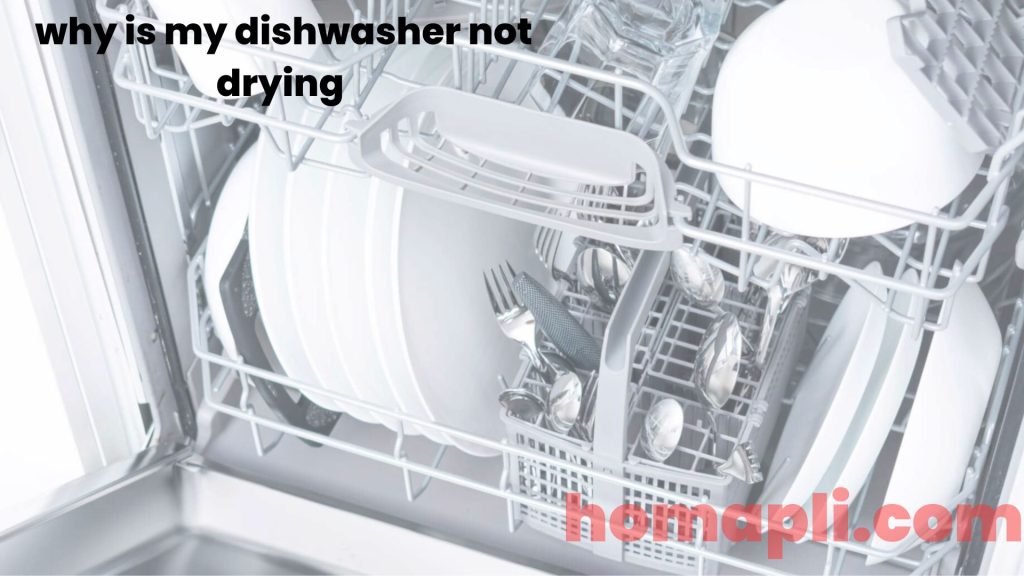
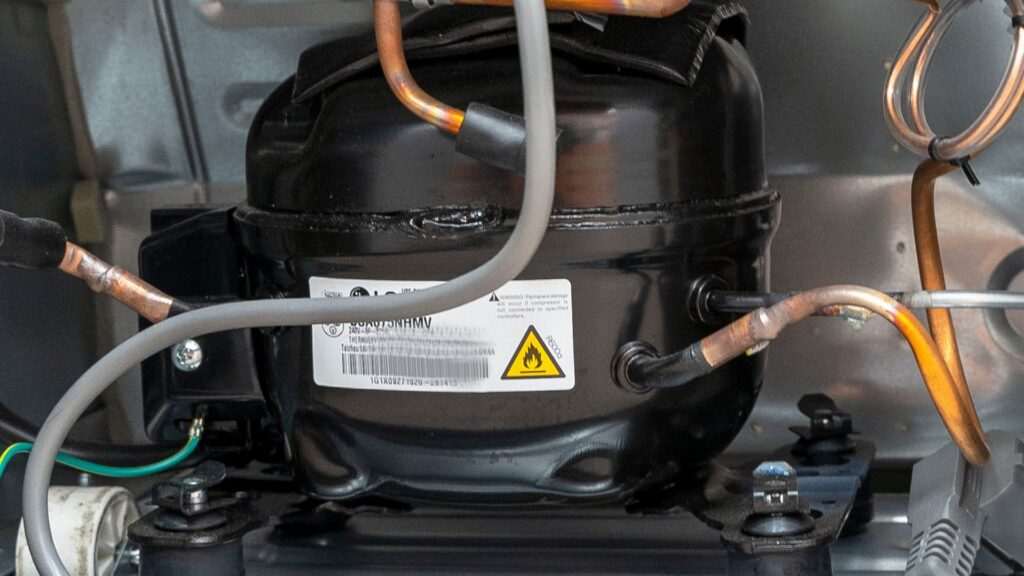

Pingback: How Dishwashers Work: A Comprehensive Guide